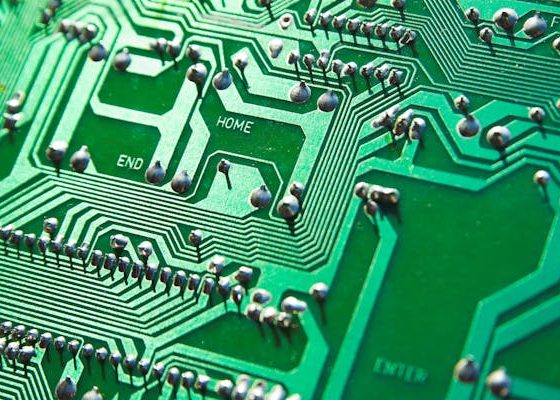
The 21st century has witnessed an unprecedented surge in technological advancements, with smart technology leading the way in transforming how we live, work, and interact with the world. From smart homes and wearable devices to intelligent transportation systems and healthcare innovations, the best smart technology is seamlessly integrating into our daily routines, making life more convenient, efficient, and enjoyable. This article delves into various aspects of the best smart technology, highlighting its features, benefits, and future potential.
Smart Homes: The Epicenter of Modern Convenience
Smart homes epitomize the best smart technology, combining automation, connectivity, and artificial intelligence (AI) to create living spaces that adapt to our needs and preferences. Key components of a smart home include:
- Smart Lighting: Automated lighting systems like Philips Hue and LIFX can be controlled via smartphones or voice commands, offering customizable lighting options that enhance mood, productivity, and energy efficiency.
- Smart Thermostats: Devices such as Nest and Ecobee learn user habits and adjust heating and cooling systems accordingly, reducing energy consumption and lowering utility bills.
- Smart Security Systems: Advanced security solutions like Ring and Arlo provide real-time monitoring, motion detection, and remote access, ensuring peace of mind and enhanced safety for homeowners.
- Smart Appliances: Refrigerators, ovens, washing machines, and other appliances from brands like Samsung and LG offer remote control, energy management, and integration with virtual assistants like Amazon Alexa and Google Assistant.
- Smart Entertainment: Home entertainment systems, including smart TVs, speakers, and streaming devices, offer personalized content recommendations and seamless integration with other smart home devices.
Wearable Technology: Enhancing Health and Connectivity
Wearable technology is another realm where the best smart technology is making significant strides. These devices are designed to be worn on the body, offering a range of functionalities from health monitoring to connectivity enhancements.
- Smartwatches: Apple Watch, Samsung Galaxy Watch, and Fitbit are leading the market, providing features such as fitness tracking, heart rate monitoring, GPS navigation, and seamless integration with smartphones.
- Fitness Trackers: Devices like Fitbit Charge and Garmin Vivosmart focus on health metrics, tracking activities, and sleep patterns, and offering insights to improve overall well-being.
- Smart Clothing: Innovations in smart textiles are leading to the development of clothing that can monitor physiological data, enhance athletic performance, and even adjust to environmental conditions.
- Augmented Reality (AR) Glasses: Products like Google Glass and Microsoft HoloLens overlay digital information onto the real world, offering applications in fields such as healthcare, education, and industrial design.
Smart Transportation: Paving the Way for the Future
The best smart technology is also revolutionizing transportation, making travel safer, more efficient, and environmentally friendly. Key innovations include:
- Autonomous Vehicles: Self-driving cars from companies like Tesla, Waymo, and Uber are at the forefront of smart transportation, utilizing AI, sensors, and machine learning to navigate roads, reduce accidents, and optimize traffic flow.
- Electric Vehicles (EVs): Brands like Tesla, Nissan, and Chevrolet are leading the charge in electric vehicle production, offering eco-friendly alternatives to traditional gasoline-powered cars with features such as regenerative braking and smart charging.
- Smart Public Transport: Cities around the world are adopting smart public transport systems that use real-time data, IoT, and AI to enhance the efficiency and convenience of buses, trains, and subways.
- Connected Infrastructure: Smart roads, traffic lights, and parking systems utilize sensors and connectivity to improve traffic management, reduce congestion, and enhance road safety.
Smart Healthcare: Transforming Medical Services
Healthcare is another sector where the best smart technology is making a profound impact. Innovations in this field are improving patient outcomes, enhancing diagnostic accuracy, and streamlining medical processes.
- Telemedicine: Platforms like Teladoc and Amwell allow patients to consult with healthcare providers remotely, reducing the need for in-person visits and improving access to medical services.
- Wearable Health Devices: Devices like the Apple Watch and Fitbit not only track fitness metrics but also monitor critical health indicators such as heart rate, ECG, and blood oxygen levels, enabling early detection of potential health issues.
- Smart Medical Equipment: Hospitals are increasingly adopting smart equipment such as AI-powered imaging systems, robotic surgery tools, and automated medication dispensers to enhance the precision and efficiency of medical procedures.
- Personalized Medicine: Advances in genomics and AI are paving the way for personalized medicine, where treatments and therapies are tailored to an individual’s genetic makeup, improving efficacy and reducing side effects.
Smart Cities: Building the Future
The concept of smart cities represents the pinnacle of the best smart technology, aiming to create urban environments that are sustainable, efficient, and livable. Key components of smart cities include:
- Smart Grid: An advanced electrical grid that uses IoT, AI, and data analytics to manage energy distribution, reduce outages, and integrate renewable energy sources.
- Smart Waste Management: Systems that use sensors and data analytics to optimize waste collection routes, reduce landfill usage, and promote recycling.
- Smart Water Management: Technologies that monitor water quality, detect leaks, and manage water resources efficiently, ensuring a sustainable water supply.
- Smart Buildings: Energy-efficient buildings equipped with IoT devices and automation systems that optimize energy usage, enhance comfort, and reduce operational costs.
- Smart Governance: Digital platforms that enable citizens to interact with government services online, improving transparency, efficiency, and public participation.
The Future of Best Smart Technology
As the best smart technology continues to evolve, its potential to transform various aspects of life is immense. Several trends and innovations are expected to shape the future:
- AI and Machine Learning: Continued advancements in AI and machine learning will enable smarter decision-making, predictive analytics, and automation across various sectors.
- 5G Connectivity: The rollout of 5G networks will provide faster, more reliable internet connections, enhancing the capabilities of smart devices and enabling new applications in areas such as telemedicine, autonomous vehicles, and smart cities.
- Edge Computing: By processing data closer to where it is generated, edge computing will reduce latency, enhance data security, and improve the performance of smart devices and systems.
- Blockchain: Blockchain technology will enhance the security, transparency, and efficiency of transactions and data exchanges in smart systems, particularly in areas such as supply chain management, healthcare, and finance.
- Sustainability: Smart technology will play a crucial role in addressing global challenges such as climate change, resource depletion, and urbanization, promoting sustainable practices, and reducing environmental impact.
Challenges and Considerations
Despite the numerous benefits, the widespread adoption of the best smart technology also presents challenges that need to be addressed:
- Privacy and Security: The proliferation of connected devices and data collection raises concerns about privacy and security. Robust measures are needed to protect user data and prevent cyber-attacks.
- Interoperability: Ensuring that different smart devices and systems can communicate and work together seamlessly is crucial for maximizing their potential.
- Digital Divide: Access to smart technology is not evenly distributed, with disparities between urban and rural areas, and among different socio-economic groups. Efforts are needed to bridge this digital divide and ensure equitable access.
- Regulation and Standards: The rapid pace of technological advancement requires updated regulations and standards to ensure the safety, reliability, and ethical use of smart technology.
Conclusion
The best smart technology is revolutionizing every aspect of our lives, from our homes and workplaces to our healthcare systems and urban environments. As these technologies continue to advance, they hold the promise of making our world more connected, efficient, and sustainable. However, it is essential to address the accompanying challenges and ensure that the benefits of smart technology are accessible to all. By doing so, we can fully realize the potential of the best smart technology to enhance our quality of life and create a better future for generations to come.

